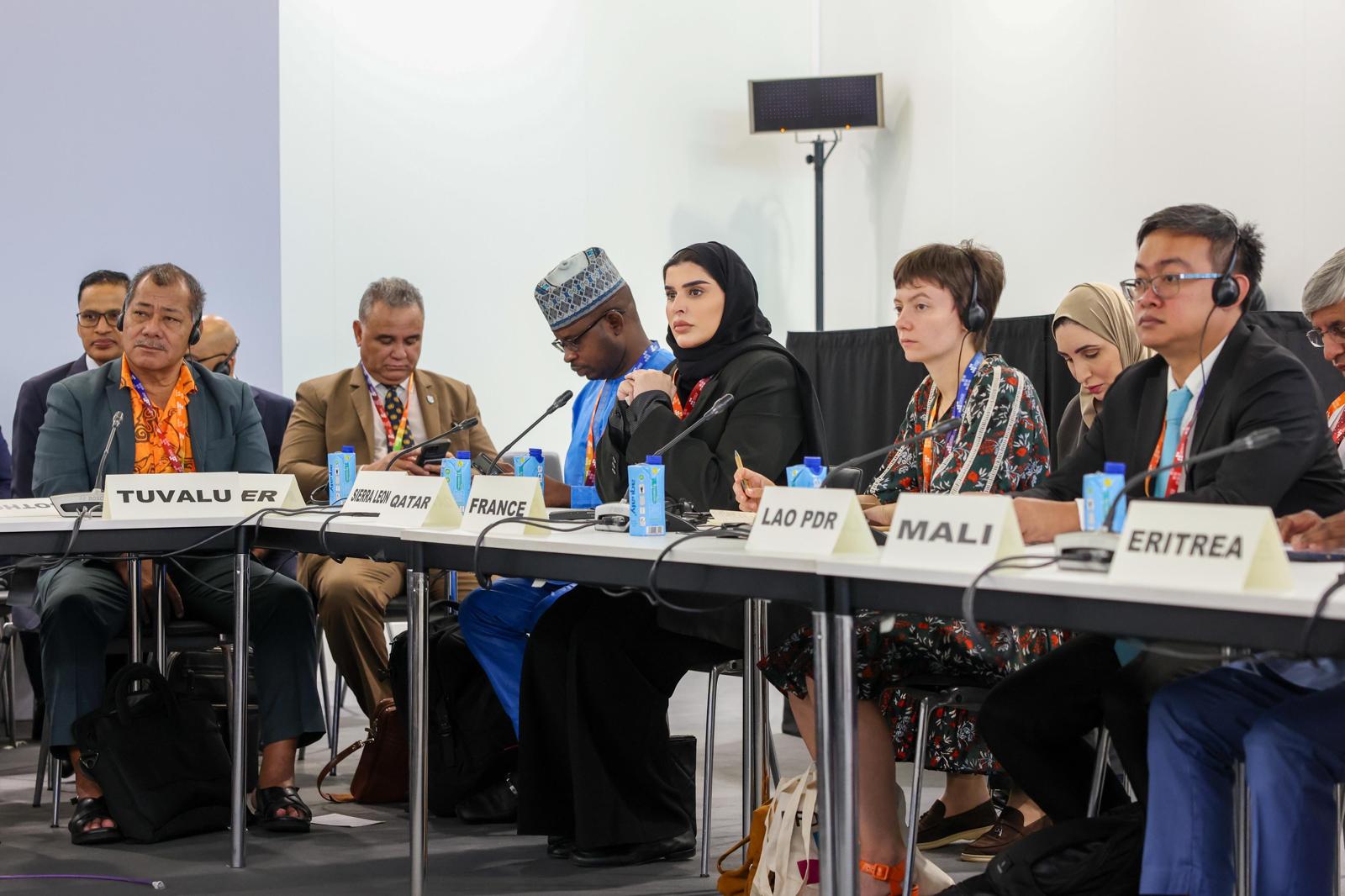Qatar Participates in 8th Plenary, Closing Sessions of Fourth International Conference on Financing for Development

Seville, July 2, 2025
The State of Qatar has participated in the Eighth Plenary and Closing Sessions of the Fourth International Conference on Financing for Development, held in Seville, Spain.
HE Minister of State for International Cooperation Maryam bint Ali bin Nasser Al Misnad, represented the State of Qatar in both sessions.
The conference concluded with the adoption of a comprehensive document affirming that financing for development should not remain synonymous with traditional aid, but rather should transform into a sustainable investment approach that leads to the creation of opportunities and economic growth in developing countries.
The document noted that reforming the global financial system is an urgent necessity, including enhancing the representation of developing countries in international financial institutions, improving borrowing conditions to align with development capabilities, and imposing fair taxes on wealth and environmentally polluting activities.
The document noted that reducing inequality between and within countries can only be achieved through transparent and equitable financing that takes into account the needs of vulnerable and marginalized groups.
In this context, it emphasized that the global debt crisis must not impede development.
Therefore, the document supported innovative mechanisms, including debt-for-development or climate investment swaps, automatic debt service suspension in emergencies and disasters, and the establishment of a global debt registry to enhance transparency and accountability.
It is worth noting that the Doha 2023 Declaration established the framework for the principles of economic justice and support for least developed countries, while the Seville Declaration is expected to operationalize these principles through a multilateral implementation platform based on innovative financing tools and new development alliances.
The Doha 2023 Declaration affirmed the recognition of accumulated challenges and acknowledged that least developed countries are suffering from accumulated crises, including the repercussions of the COVID-19 pandemic, climate change, rising debt, lack of financing and investment, and fragile supply chains.
The Doha Declaration also included a comprehensive vision for development through 2031, encompassing a program of six priority tracks: investing in human capital (health, education, and social protection), accelerating digital transformation, addressing climate change and enhancing resilience, supporting integration into the global economy, strengthening governance and institutions, and mobilizing resources and concessional financing.
The Doha 2023 Declaration also called for enhancing access to concessional financing and grants, debt relief or cancellation, increasing the share of least developed countries in global trade, and accelerating the implementation of the Sustainable Development Goals (SDGs).
The Seville Declaration represents a pivotal link in a series of global initiatives and establishes a new phase of investment- and equity-based development financing, in preparation for the in-depth review of the international community's commitments to least developed countries, which will be held in Doha next November.

